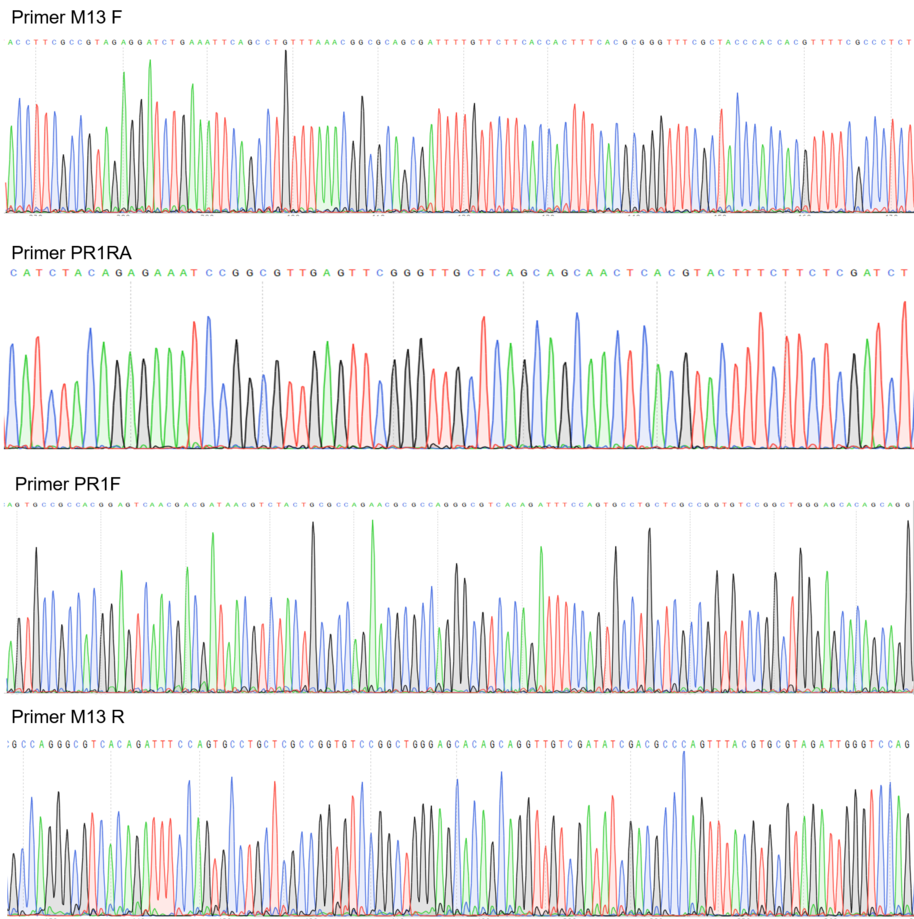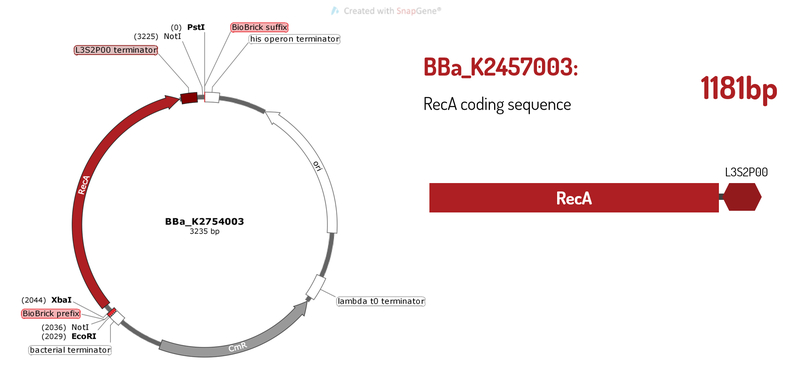Difference between revisions of "Part:BBa K2457003"
Giomaklouf (Talk | contribs) |
Giomaklouf (Talk | contribs) |
||
| Line 2: | Line 2: | ||
__NOTOC__ | __NOTOC__ | ||
<partinfo>BBa_K2457003 short</partinfo> | <partinfo>BBa_K2457003 short</partinfo> | ||
| + | BBa_K2457002 was engineered to be a building block of the standard BioBrick toolbox for bacterial genome: the ([http://2017.igem.org/Team:Amazonas_Brazil pCRISPeasy]). | ||
| − | <p>The BioBrick BBa_K2457002 is an essential building block | + | <p>The BioBrick BBa_K2457002 is an essential building block of the standard BioBrick toolbox for bacterial genome: the ([http://2017.igem.org/Team:Amazonas_Brazil pCRISPeasy]). It will be involved with homologous recombination processes. This part has the length of 1210bp and it is oriented in reverse, being composed of the RecA coding sequence and the L3S2P00 transcription terminator.</p> |
[[File:BBa K2457003 circuit.png]] | [[File:BBa K2457003 circuit.png]] | ||
Revision as of 17:12, 1 November 2017
Standardized RecA coding sequence
BBa_K2457002 was engineered to be a building block of the standard BioBrick toolbox for bacterial genome: the ([http://2017.igem.org/Team:Amazonas_Brazil pCRISPeasy]).
The BioBrick BBa_K2457002 is an essential building block of the standard BioBrick toolbox for bacterial genome: the ([http://2017.igem.org/Team:Amazonas_Brazil pCRISPeasy]). It will be involved with homologous recombination processes. This part has the length of 1210bp and it is oriented in reverse, being composed of the RecA coding sequence and the L3S2P00 transcription terminator.
Figure 1: BBa K2457003 circuit.
Usage and Biology
After the cleavage by Cas9 in the target sequence at a ribonucleoprotein complex with the guide RNA, originating blunt-end strands. In SOS response, the endogenous RecBCD repair enzymes from the cell machinery degrade the blunt-end extremities in 5’ to 3’ direction until the chi site recognition. Then, their activity in 5’ to 3’ direction is finished and keeps going to 3’ strand, forming 3’ DNA single stick-ends strands. This segment is recognized by RecA, which builds a DNA-protein filament able to investigate for a homologous template on undamaged DNA sequences, assisting on the polymerase invasion process and setting-up the Holliday Junction. This generates a crossover with the strands, leading to the recombination among the undamaged strand and the broken strand. Now let's analyze the functional scheme of this building block:
Disign
Characterization
 Figure 2:Sequencing electropherogram from BBa_K2457003.
Figure 2:Sequencing electropherogram from BBa_K2457003.
Figure 3:Alignment of the designed sequence and our final construction from BBa_K2457003.
Sequence and Features
- 10COMPATIBLE WITH RFC[10]
- 12COMPATIBLE WITH RFC[12]
- 21COMPATIBLE WITH RFC[21]
- 23COMPATIBLE WITH RFC[23]
- 25INCOMPATIBLE WITH RFC[25]Illegal AgeI site found at 508
Illegal AgeI site found at 1012 - 1000COMPATIBLE WITH RFC[1000]


